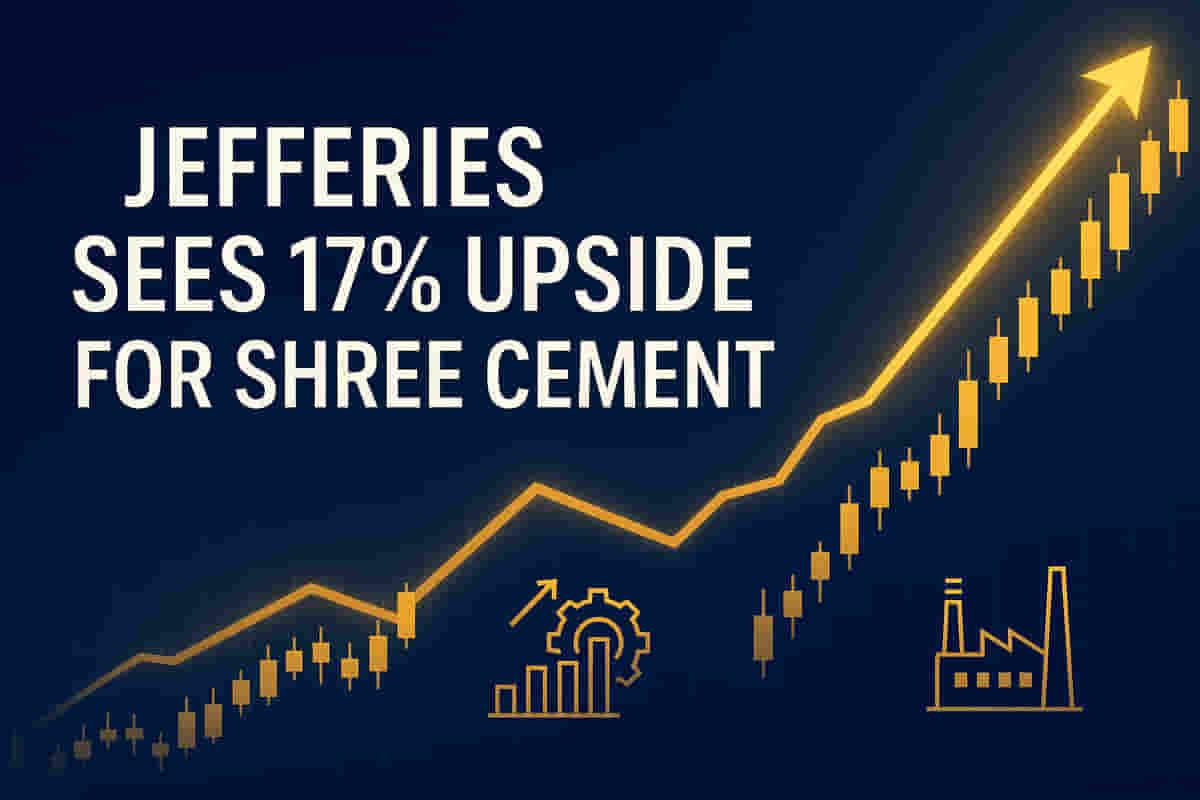Jefferies Maintains Buy on Shree Cement, Projects 17% Upside Fueled by Premiumization Strategy
Industrial Goods/Services
|
31st October 2025, 1:39 AM

▶
Stocks Mentioned :
Short Description :
Detailed Coverage :
Jefferies maintains a positive outlook on Shree Cement, retaining its 'Buy' rating and setting a target price of Rs 33,420, suggesting a 17% potential upside. The brokerage noted that Shree Cement's September quarter earnings were affected by increased operating costs, leading to a profit miss. Total costs per tonne rose by 5% sequentially, partly due to one-time expenses at its Guntur plant.
However, Jefferies highlighted the company's strategic focus on improving its mix of premium cement products, which now constitute 21% of sales, up from 15% a year ago. This "value over volume" approach, coupled with disciplined pricing, is seen as a floor for profitability. While cement volumes grew approximately 5% year-on-year, realisations softened sequentially but remained up nearly 9% year-on-year, demonstrating pricing resilience. The company is also working on logistics efficiency, aiming to increase rail freight dispatches from 11% to 20% over two years.
Shree Cement's capacity expansion remains on track, with targets of 67 million tonnes per annum (MTPA) by FY26 and 80 MTPA by FY28–FY29, supported by a steady capital expenditure (capex) guidance of Rs 3,000 crore for FY26. The company's UAE operations were a significant bright spot, with a 158% year-on-year increase in EBITDA and 34% volume growth.
Jefferies acknowledged risks such as fuel cost volatility, pricing pressure in southern markets, and potential delays in capacity ramp-up. Nevertheless, Shree Cement's strong balance sheet and improving cost structure are expected to help it navigate short-term challenges, with its disciplined capital allocation differentiating it from peers.
Impact: This news is highly relevant for Shree Cement shareholders and investors in the Indian cement sector. The brokerage's positive stance and price target can influence investor sentiment and potentially boost the stock price. It provides insights into the company's strategy, operational performance, and future growth prospects, which are crucial for investment decisions in the sector. Rating: 8/10
Difficult Terms: * Premiumisation Strategy: A business strategy focused on selling higher-priced, more advanced, or higher-quality versions of a product or service. For Shree Cement, this means selling more of their premium cement variants. * Cost-Efficiency Measures: Actions taken by a company to reduce its expenses and improve productivity without compromising on quality or output. * Disciplined Pricing: A pricing strategy where a company avoids aggressive discounting and maintains stable prices, often to protect profit margins, even if it means slower volume growth. * Operating Leverage: The degree to which a company uses fixed costs in its operations. Higher operating leverage means fixed costs are a larger proportion of total costs, leading to greater profitability growth when sales increase. * Realisation: The actual price realized from selling a product or service. In this context, it means the average price per tonne of cement sold. * Year-on-year (YoY): A comparison of a period's results (e.g., a quarter) with the same period in the previous year. * Quarter-on-quarter (QoQ): A comparison of a period's results with the immediately preceding period (e.g., Q2 vs Q1 of the same year). * EBITDA: Earnings Before Interest, Taxes, Depreciation, and Amortization. It is a measure of a company's operating performance. * Capex (Capital Expenditure): Funds used by a company to acquire, upgrade, and maintain physical assets like property, plants, buildings, technology, or equipment. * MTPA (Million Tonnes Per Annum): A unit of measurement for the production capacity of cement plants. * AFR Adoption: Use of Alternate Fuels and Raw Materials in cement manufacturing, which can help reduce costs and environmental impact. * Balance Sheet: A financial statement that reports a company's assets, liabilities, and shareholders' equity at a specific point in time. A strong balance sheet indicates financial stability.